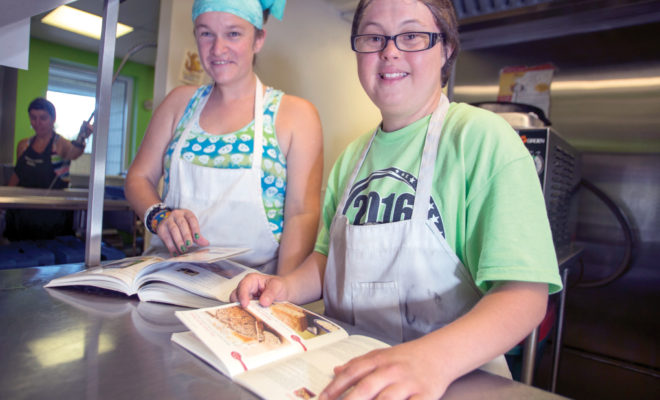
Feature
Haven Industries: Where Work is a Joy
By Sylvia Whitman
October, 2020 – Maus, 33, adores her job at The Haven. Five days a week, she and her team cook lunch for the Selby Preschool on campus. They make pizza. Spaghetti. Chicken cacciatore. “We do a lot of taco days,” she says. Her specialty? Meatloaf. “I feel like I’m making it with love.”
Founded in 1954 as the Sunshine Day School for kids with special needs, The Haven has grown into a multidimensional nonprofit that serves 800 individuals with disabilities every month. About half have Down Syndrome; the rest live with a variety of disorders, from cerebral palsy to developmental delays. Autism is an increasingly common secondary as well as primary diagnosis.
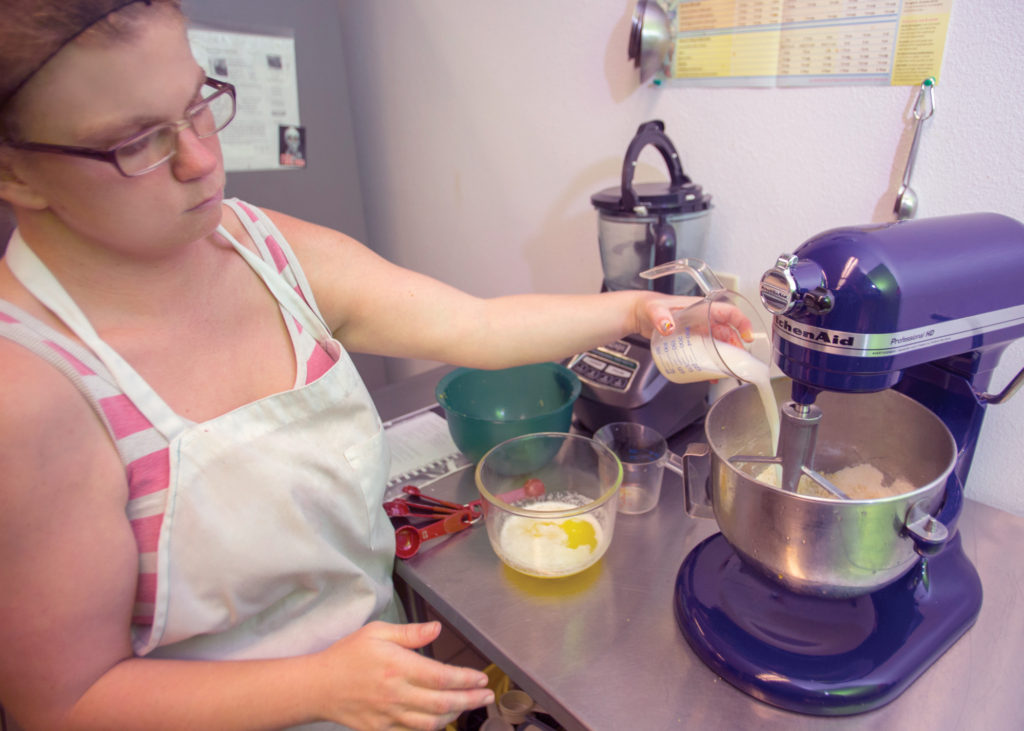
In addition to preparing about 50 youngsters for elementary school, The Haven enrolls another 50 students ages 14-22 at its private Haven Academy. For adults, the organization runs six group homes on its 32-acre campus in north Sarasota, housing 48 residents. On weekdays they are joined by roughly 150 commuters for Adult Day Training—which for most clients, like Megan, includes several hours on the clock at work.
This emphasis on employment distinguishes The Haven. When Brad Jones became CEO almost five years ago, he led a shift in focus from a “day-care type environment” to a workplace. After years on staff in the residential program, Jones knew clients craved both a social experience and a sense of purpose.
The Haven envisioned people with disabilities learning job skills on campus while earning a paycheck. The ultimate goal was launching those who proved capable into full- or part-time positions out in the community. Jones was hunting for real work, not make-work. He knew The Haven’s clients loved routine and excelled at repetitive tasks. “They’re sticklers for quality,” he says. “And they won’t stop until the job’s done and they have exactly the number that they need.”
So, he and The Haven’s leadership went looking for companies willing to partner. Jones talked up the win-win relationship. With no HR hassles, employers can contract out tasks like assembling and packaging that other workers find tedious—while simultaneously doing a good turn for a marginalized population. Florida’s Agency for Persons with Disabilities funds the infrastructure for Adult Day Training, including staff instructors. So when the nonprofit signs a contract with companies, all the income goes into worker pay. The rate varies depending on the number of steps involved in a job, but now every employed client earns at least minimum wage.
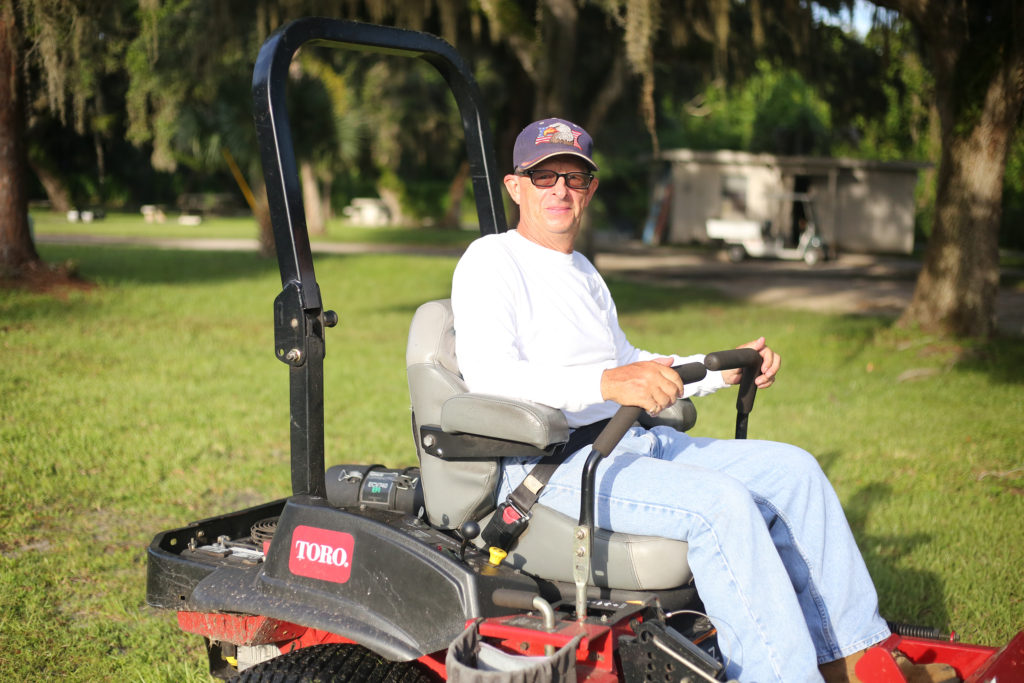
Partnering with Purpose
“Sun Hydraulics was one of the first employers we landed,” says Jones. “That was really the key. Some of the work we complete for Sun Hydraulics actually goes into space. NASA uses it. It’s stuff that needs to be right.” Sun Hydraulics’ trust and confidence in The Haven opened doors. “Once we were able to show that track record, then more and more companies came to us,” says Jones. “It just bloomed from there.”
Bealls department store also signed on, hiring The Haven’s clients to sort and bundle hangers. Commercial Refrigerator Door Company has contracted for workers to build hinges and refrigerator locks. Adult Day Training now encompasses everything from lawn care and janitorial services to weaving and a culinary arts program that staffs an on-campus bakery and prepares school meals.
“Clients are learning how to learn a skill,” says Becky Forest, who came on two years ago as director of Haven Industries. “They’re learning how to follow directions, how to work in a group setting, not just be home with mom and dad. Those simple things we take for granted, like taking turns. Please, thank you, excuse me.”
Adult Day Training is anything but a sweatshop. Each client makes an individual plan, choosing how many (if any) days to work. Between breaks for snack, lunch, and recreation, the average worker logs about three hours per day. Forest points out that the pace and the flexibility suit clients with disabilities, who also benefit from an instructor’s support.
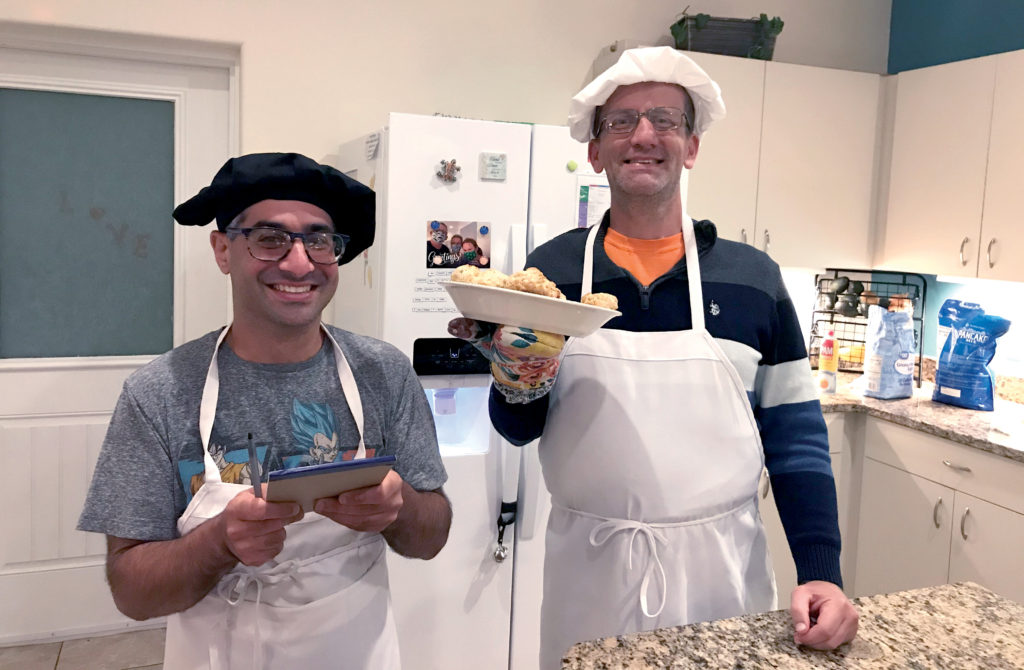
About 15-20% of clients graduate to “competitive employment,” usually part time. Haven Industries helps clients find jobs and checks in with them regularly. Government rules limit out-in-world hours for people who quality for Social Security disability income. Fortunately, most clients have insurance through their parents or Medicaid. “They’ll work maybe 10 hours at Publix,” says Jones, “and then they’ll come here three days a week. They’ll split the time.”
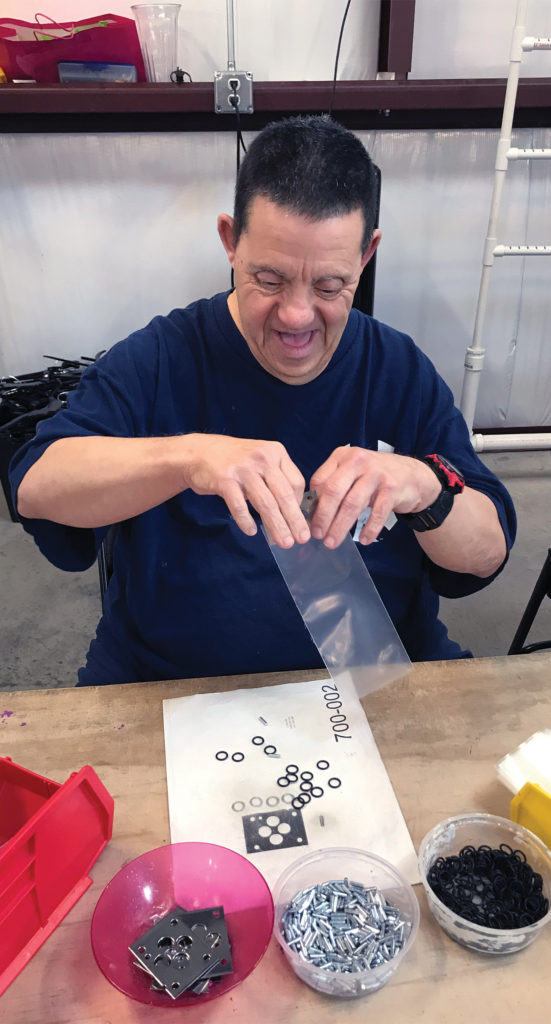
He notes that many clients don’t want to leave the on-campus program. Older “retirees” return. “We have our own fitness center, with personal trainers who work with clients. We have our own aquatic complex. There are parties, dances. A lot of times, people with disabilities, specifically adults, don’t have a social life. They come here for that. That’s a big component of their well-being.” Even in the warehouse, he says, they’re having fun. Music’s playing. “It’s a party atmosphere. But they’re still getting work done and getting paid by these companies.”
The existence of a paycheck matters more than its size. Although clients understand money, Jones estimates that half can’t really tell the difference between $1 and $100. “They just know they’re getting a check. It’s payday. They’re getting rewarded for their work.” Parents and caregivers mind the books. When there’s jockeying, Jones says, it’s usually about working with a buddy, or a girlfriend, not about flaunting pay. “There’s really that sort of socially driven high school/college campus atmosphere.”
Success = A Satisfied Worker
After graduating from Sarasota High in 2006, Megan Maus headed into the job market. She had worked in the high school cafeteria. But finding a job around town wasn’t easy, she says. She worked at Goodwill for a while, then at Publix, but struggled to fit in. “The people outside did not treat me right. They made me a little bit sad or mad,” she says. “At The Haven, they treated me the way I want to be treated.”
Now, Maus says, “I love getting up in the morning when I have to go to work.” Much as she likes getting paid—Maus just bought herself a laptop—she loves working more. “I like to do anything. I like to do everything,” she says.
The commute is easy, a walk from the group home on campus she shares with 7 other residents and two staff members. She reports to the kitchen at 8 am, and the crew delivers a cart full of lunch to the preschool around 10:30. “I love the kids,” she says. Then Maus’s team cleans the kitchen—“makes it all nice and shiny.” She eats lunch, has some free time, and leaves with all the other clients at 2 pm.
“It feels really good inside to have a job. Some people outside this world don’t even have jobs,” she observes. “I enjoy my day with my friends and my teacher. You do what you need to do and then go home.”
Pandemic Fallout and Future Plans
The coronavirus upset plans at The Haven, as it has everywhere. With Adult Day Training, “we definitely were going full steam ahead and getting bigger contracts,” says Jones, “and then we had to close.” To protect both residents and commuting clients, the organization shut down from mid-March to mid-July but managed to avoid mass layoffs, furloughing only 15 of its 119 employees.
As the lockdown eased, Forest polled families. Some parents and guardians weren’t ready to send clients back. But clients who can wear masks and practice social distancing are slowly returning to Haven Industries, which, like the pool and other facilities on campus, is operating at reduced capacity. The warehouse, usually staffed with about 100 clients, is now averaging 40, though Forest predicts it will be back in full swing by the end of October.
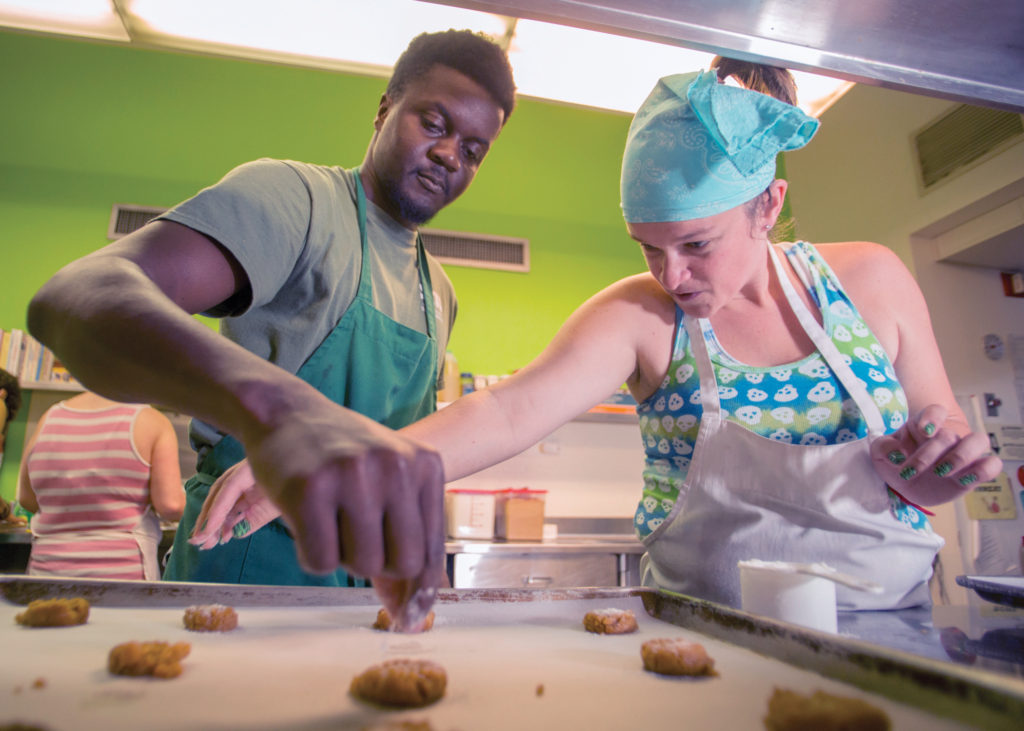
Although Jones worried that employers might desert The Haven, contracts have actually increased. “A lot of these companies had to lay off workers, so they were searching for a more economical source of labor,” Jones says. “Now Bealls has 3 semi-trucks parked here, instead of one.” Both Forest and Jones anticipate even more expansion in Haven Industries. They’d like to build a bridge between Haven Academy, the high school, and Adult Day Training.
However, planning in these uncertain times remains the biggest challenge, according to Jones. On the budget front, big annual events are being replaced by intimate fundraising and calls to donors. Looking forward, The Haven is considering buying land for another residential/vocational campus since the current one has a waiting list of 170. Parents on the whole prefer that model to single group homes sprinkled throughout Sarasota neighborhoods.
“More independence in the community sounds good,” says Jones, but it’s often hard for people with disabilities to access adequate public transportation. “The campus setting gives them a place where they can hang out with their friends down the road and ride their bikes,” says Jones. The Haven, for instance, has a big nature trail.
“One location for work and home takes the burden off parents,” he adds. “Like the clients, the parents want the more social aspect of having residential and employment options all in one place.”
FOR MORE INFORMATION about the Haven, please visit www.thehavensrq.org or call 941.355.8808.



You must be logged in to post a comment Login